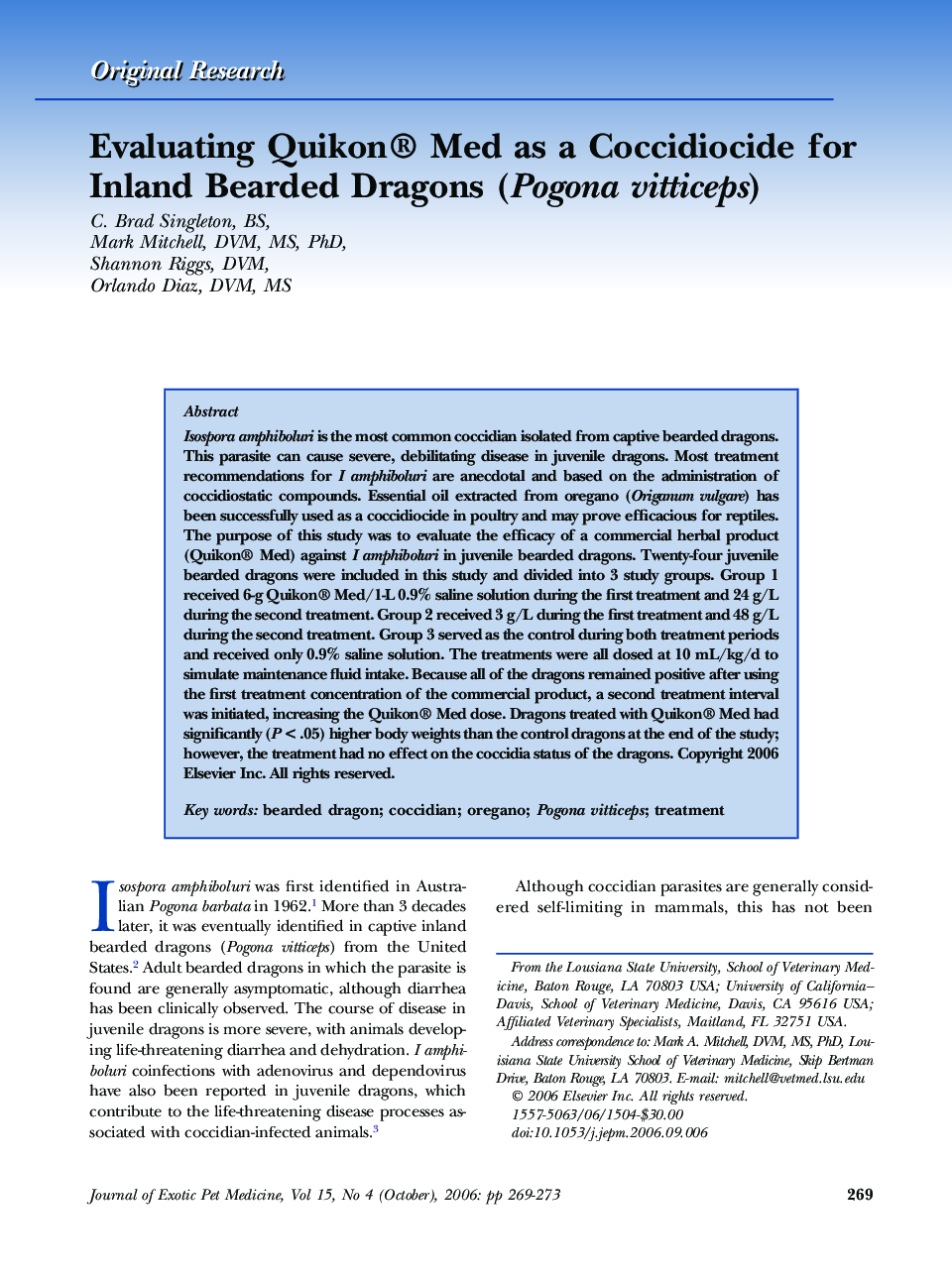| کد مقاله | کد نشریه | سال انتشار | مقاله انگلیسی | نسخه تمام متن |
|---|---|---|---|---|
| 2397611 | 1101916 | 2006 | 5 صفحه PDF | دانلود رایگان |

Isospora amphiboluri is the most common coccidian isolated from captive bearded dragons. This parasite can cause severe, debilitating disease in juvenile dragons. Most treatment recommendations for I amphiboluri are anecdotal and based on the administration of coccidiostatic compounds. Essential oil extracted from oregano (Origanum vulgare) has been successfully used as a coccidiocide in poultry and may prove efficacious for reptiles. The purpose of this study was to evaluate the efficacy of a commercial herbal product (Quikon® Med) against I amphiboluri in juvenile bearded dragons. Twenty-four juvenile bearded dragons were included in this study and divided into 3 study groups. Group 1 received 6-g Quikon® Med/1-L 0.9% saline solution during the first treatment and 24 g/L during the second treatment. Group 2 received 3 g/L during the first treatment and 48 g/L during the second treatment. Group 3 served as the control during both treatment periods and received only 0.9% saline solution. The treatments were all dosed at 10 mL/kg/d to simulate maintenance fluid intake. Because all of the dragons remained positive after using the first treatment concentration of the commercial product, a second treatment interval was initiated, increasing the Quikon® Med dose. Dragons treated with Quikon® Med had significantly (P < .05) higher body weights than the control dragons at the end of the study; however, the treatment had no effect on the coccidia status of the dragons.
Journal: Journal of Exotic Pet Medicine - Volume 15, Issue 4, October 2006, Pages 269–273